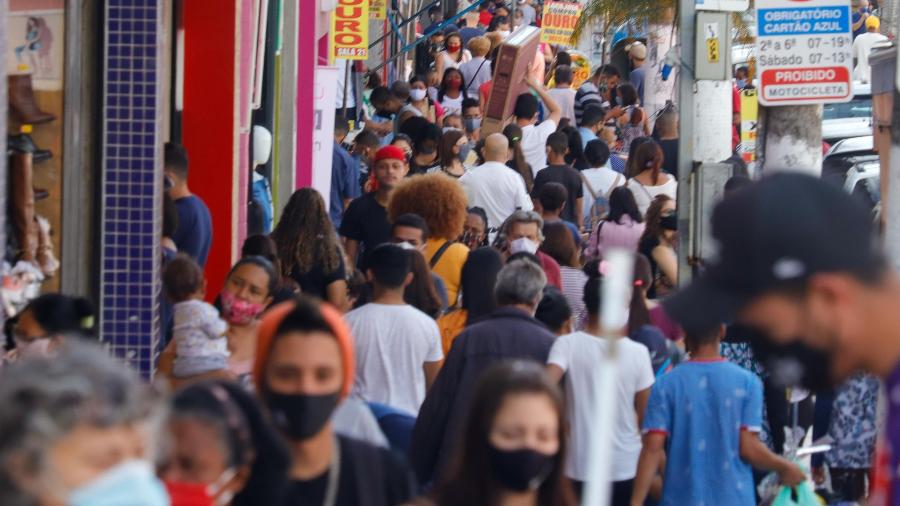RIO DE JANEIRO, BRAZIL – Although some Brazilian states are now announcing restrictions to the Christmas and New Year celebrations in order to contain the novel coronavirus pandemic, the measure is still facing resistance from the federal government and its supporters, which on Friday, December 4th, popularized the hashtag #VaiTerNatalSim (#YesThereWillBeChristmas).

According to infectologists, the absence of consensus among authorities regarding restrictions will result in increased infections and a difficult month of January.
A country with a strong Christmas tradition, Italy has decided to discourage festivities in 2020. A decree with strict measures in force between December 21st and January 6th has even affected the traditional Midnight Mass, which this year will start two hours earlier.
Over there, travel after 10 PM and across the country on these dates will be forbidden. Hotel suppers are forbidden and Prime Minister Giuseppe Conte even strongly urged “not to welcome at home people with whom you don’t live”.
In Brazil, the state of São Paulo has forbidden New Year’s Eve celebrations in bars, restaurants and hotels and recommends that festivities should not gather more than ten people. In Belo Horizonte, the city hall has banned the consumption of alcoholic beverages in bars, restaurants and snack bars from December 7th. Just like São Paulo, Rio Grande do Sul has suspended the end-of-year celebrations.
However, at the federal level, silence on the issue suggests that the government will leave the restrictive measures to the other federal authorities, which is a mistake, say infectologists, consultants of the SBI (Brazilian Society of Infectology).
Authorities reflect on the issue
“There are different positions between states, municipalities and the federal government,” says infectologist Valdez Ramalho Madruga. “There are governors who ordered the cancellation of events, but there are mayors who want to hold them, while the President defines the disease as a ‘minor flu’. The population doesn’t know who to obey”.
“There is a lack of stance, a leadership. It won’t work if each state does it its own way”, says infectologist Eliana Bicudo, for whom “the second wave is already here”.
“I’m saying this as a doctor who cares for Covid-19 patients. I saw some relief in October and November, and now a boom again, like in June and July”, she says. “We need to centralize the guidelines so that the states comply with them.”
“The federal government must take a stand on festivities, or we’ll have a gloomy January. Public health, health regulators and governments must take a stand or we won’t be able to handle the situation in January,” said Eliana Bicudo.
Christmas vs. New Year
“Unfortunately, Christmas and New Year need to be different from traditional in 2020,” says infectologist Leonardo Weissmann. “We know it’s a time of family reunion, but there’s no Christmas, New Year or time restricted to the virus.”
Eliana Bicudo says that the authorities are speaking of “a magical number of ten people in an environment”, but that “it’s not like that”.
“It depends on the area of this environment, which must be well ventilated and with a proportional number of people. It is also worth asking a few questions before inviting someone: ‘Are you all right, have you had contact with an infected person?’ If the answer is positive, don’t go to the party”, she says.
Bicudo advocates restrictions in both gatherings, but with different severity. She recalls that Christmas is a family celebration, “I believe that we will be able to gather fewer people.” New Year’s Eve, on the other hand, “is not about the family.”
“It’s a crowd celebration. This year, there can be no New Year’s Eve”, she says. “There shouldn’t be any fireworks or major music shows, because it leads to crowds.”
She recalls that Christmas and New Year’s Eve are gatherings in which “drinking and eating are the basics,” which forces people to remain without masks.
Weissmann supports restrictions on movement, as in Italy. He says that the pandemic reached Brazil through big city airports and was carried inside through highways.
“It is perfectly understandable that the economy needs to move, traders need to work, but awareness needs to be raised among the population, not merely imposing measures,” said Weissmann.
Meanwhile, part of society is against any restriction in the last days of the year. On Friday, a social media movement popularized the hashtag #VaiTerNatalSim.
“There will be supper, there will be hugging, there will be kissing and there will always be Christ in our hearts and in our home.#VaiTerNatalSim”
— Diego Garcia (@dimacgarcia) December 4th, 2020
“Hey Brazil! My family is already preparing the Christmas celebration, my secret friend, Santa Claus, that moment of prayer to celebrate Jesus, the birthday boy. #VaiTerNatalSim”
— Lu Sapori (@ALLuSapore) December 4th, 2020

